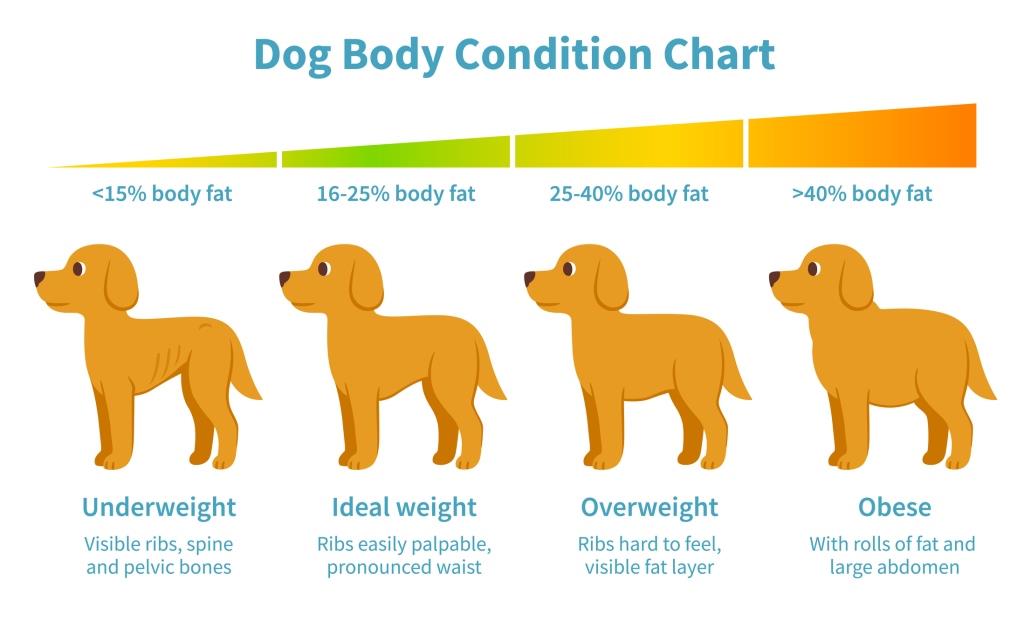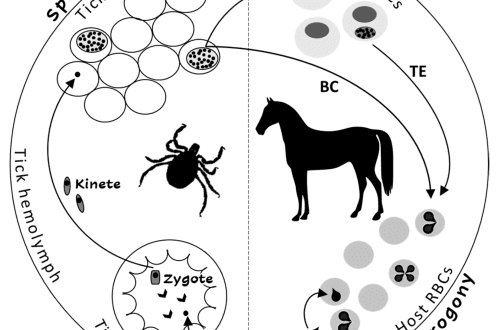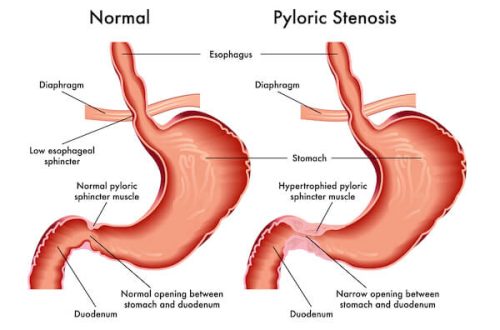
How to help your dog lose weight and maintain an ideal weight?
Did you know that over 50 percent of dogs in America are obese? If your dog is overweight, it can lead to all sorts of health problems such as arthritis, heart disease, breathing difficulties, diabetes, and even bladder cancer. Being overweight and associated health problems can make your pet less active and depressed.
Contents
What causes excess weight?
Weight gain is the result of an increase in body fat. It is usually associated with overeating, especially when combined with physical inactivity. But there may be other factors as well.
Age Older dogs are less active and need fewer calories.
Breed: Some breeds are more prone to weight gain. These include Labrador Retrievers, as well as Cocker and Cavalier King Charles Spaniels.
Castration/Sterilization: Clinical studies have shown that the basal metabolism in dogs slows down after castration. These animals require fewer calories.
Health problems: In rare cases, weight gain is associated with diseases that require special treatment.
Overfeeding: Dogs with unlimited access to food, for objective reasons, eat more than they need.
Binge eating. Some commercial feeds contain too much salt and fat. This makes it taste better, and your dog will enjoy overeating it.
Food habits. Feeding leftovers and “human food” from the table can lead to excess weight.
Lack of physical activity. Too much food and too little physical activity leads to the same result – obesity.
IMPORTANT: Even if you do not notice any signs of overweight in your dog, it is necessary to regularly weigh it at the veterinarian to maintain an ideal weight.
Is my dog overweight?
For each dog, you can calculate the ideal weight based on its breed and size. A veterinarian will always help you with this, who will tell you how to determine if your dog is overweight. Between checks, place your palms on her sides – are the ribs palpable with difficulty or not palpable at all? If so, she is probably overweight.
If your dog is obese, you may notice some of the following signs:
- When you run your palms along the sides, her ribs are not palpable.
- Loss of waistline.
- The collar needs to be loosened.
- Difficulty walking.
- Slow movements.
- Dyspnea.
- Bad mood.
- Sleeping more than usual.
How can I help my dog lose weight?
Weight problems are common in pets, but they can be successfully managed by changing the food or changing the nutrition program. The most effective way to maintain a healthy weight is to change your diet along with increased physical activity.
Tips for increasing your dog’s physical activity:
- Go for walks with your dog regularly – walking at a steady pace helps burn calories.
- Play in the yard and at home.
- Throw frisbees or a ball, or play toy search.
Importance of nutrition
The health of a dog and its condition in general largely depend on the food that it eats. A balanced diet is an essential part of an active, healthy lifestyle. Eating too much food, treats, or human food leads to being overweight, which increases the risk of diseases such as arthritis, diabetes, heart disease, and breathing problems.
Nutrition plays a very important role in caring for an overweight dog. In addition to physical activity, a low-fat, low-calorie diet can help your pet lose weight and stay fit. Fiber is one of the key ingredients as it helps your pet eat less and still feel full.
Having gained weight once, a dog may retain a tendency to become overweight, so it is necessary to develop a long-term home weight management plan based on proper diet, physical activity, and regular examinations and weighings by a veterinarian.
For an accurate diagnosis, treatment options, and dietary options, always consult your veterinarian and ask them to recommend the best food to support your dog’s healthy weight.
Ask your veterinarian about weight management for your dog:
- What is my dog’s target weight? What are the health risks if my dog is overweight?
- Learn about other diseases associated with being overweight
- Learn how to tell if your dog is losing weight
- You should feed your dog according to the target weight, not the current weight.
- What exercise program should I follow to help my dog reach his target weight?
- Discuss how you can involve your dog in your exercises.
- Ask for dog tips you can use at home
- Would you recommend Hill’s Prescription Diet dog food for my dog’s weight management?
- Ask about special nutritional issues for your dog
- How much / how often should you feed your dog the recommended food
- Can you provide me with written instructions or a booklet for controlling my dog’s weight?
- What is the best way (email/phone) to contact you or your hospital if I have questions?
- Ask if you need an additional appointment.
- Ask if an email reminder or notification will be sent





